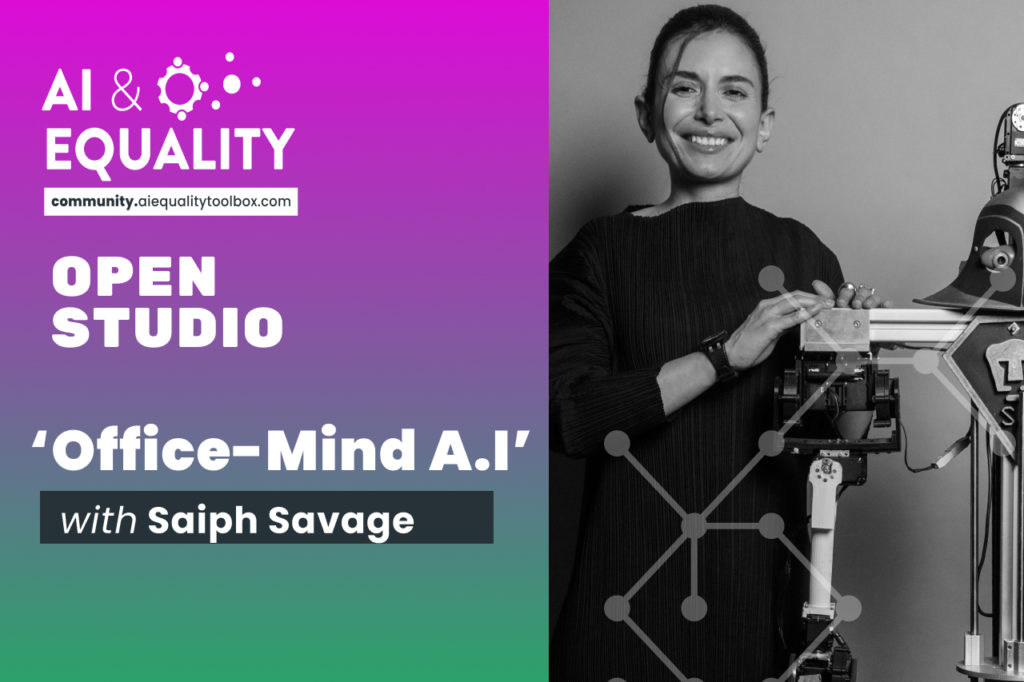In the first iteration of our <AI & Equality> Open Studio series we welcomed Saiph Savage, an Assistant Professor at Northeastern University and the director of the Northeastern Civic A.I. Lab. Savage presented her new ‘Office-Mind A.I,’ a tool developed to help workers advance their professional goals rather than having A.I. displace them.
The Office-Mind A.I is tailored to the ever-changing needs of independent contractors and online platform workers. Through a back-and-forth dialogue with the user, the A.I. creates personally tailored cover letters and personal statements for each worker, as well as help with the more menial tasks of scheduling and checking grammar. One of the strengths of the platform, Savage explains, is how it walks the user through each step of the process. Tools like ChatGPT, while helpful, require specific forms of prompting that a general audience may be unfamiliar with. With Office-Mind A.I, the user is intimately involved with the creation process and can minutely tailor the output to their liking.
Savage hopes to see the A.I., which is currently undergoing user studies at Northeastern, improve parity in underserved communities. As a case study, she points to women in Latin America, where gig work is a major stepping stone to other professional opportunities.
“That’s why this bio generator became extremely important. [..] It was the first time that they [had] the opportunity to brand themselves to be that professional person,” Savage said.
Savage also uses the bio generator to underscore the importance of co-creation in A.I. development. It was through engaging with targeted communities and understanding the population’s needs that the concept of a bio-generator emerged as one of the most requested aids. This collaborative approach ensures that the technology is not imposed but rather shaped by the very people it is designed to serve.
“It wasn’t us that was deciding what the technology should look like, but rather we were letting workers drive it,” Savage said. “I want workers to be empowered to create the A.I. that they want to see.”
About Saiph Savage
Saiph Savage is an assistant professor at Northeastern University in the Khoury College of Computer Sciences, where she directs the Northeastern Civic AI Lab. She also works at West Virginia University designing technology for rural regions. Her focus areas include human-centered AI, gig work, and public interest technology. Saiph recently won a large grant from the National Science Foundation to study human-centered AI meant to empower rural workers and was recognized by UNESCO for her impactful research. In 2018, MIT Technology Review named Saiph among their Innovators Under 35 for her civic AI research.
Recommended resources
→ How to use human centered design to. create tools for workers.
→ Book chapter on designing AI tools for workers.
→ Designing AI tools for workers in Latin America with the global partnership on AI.
→ Material on Human-Centered AI.


